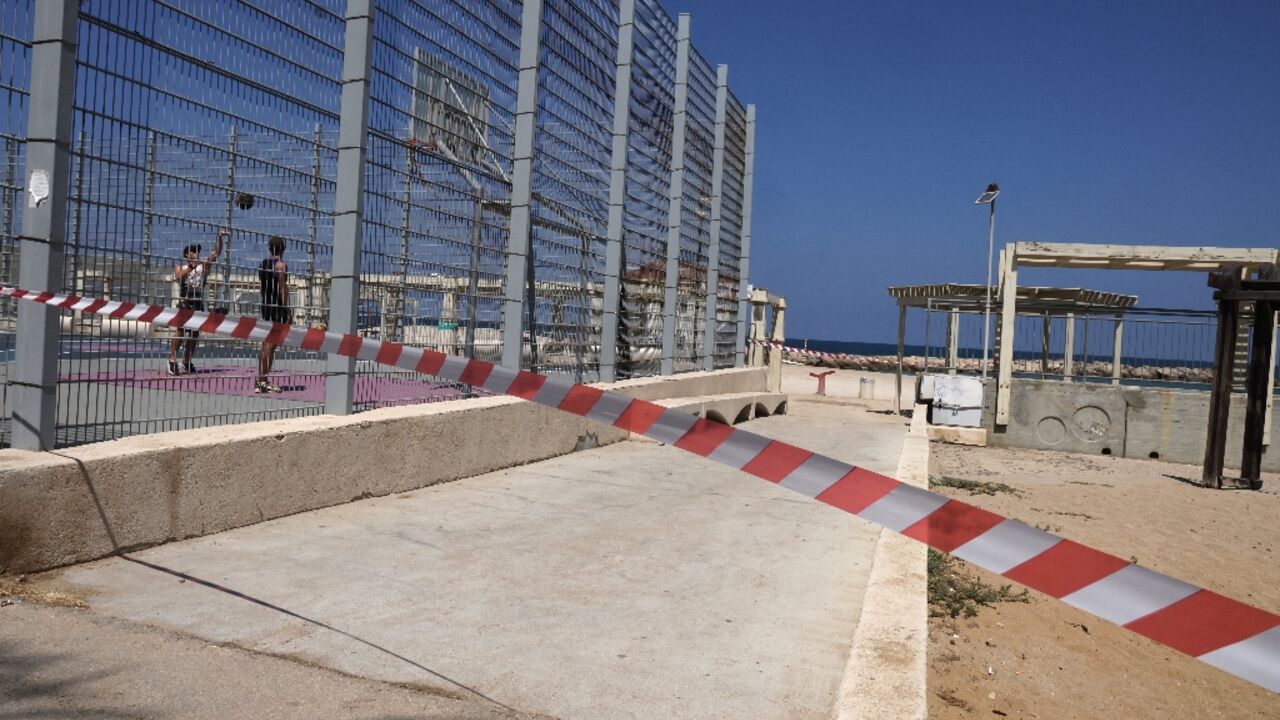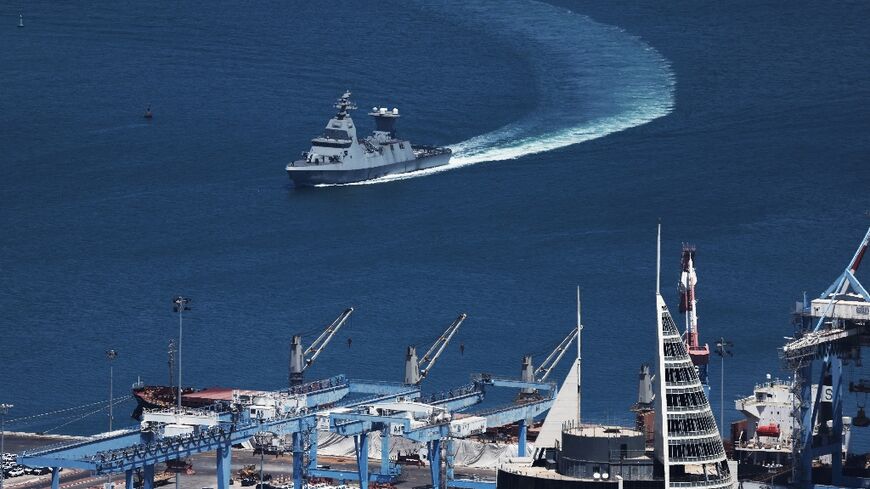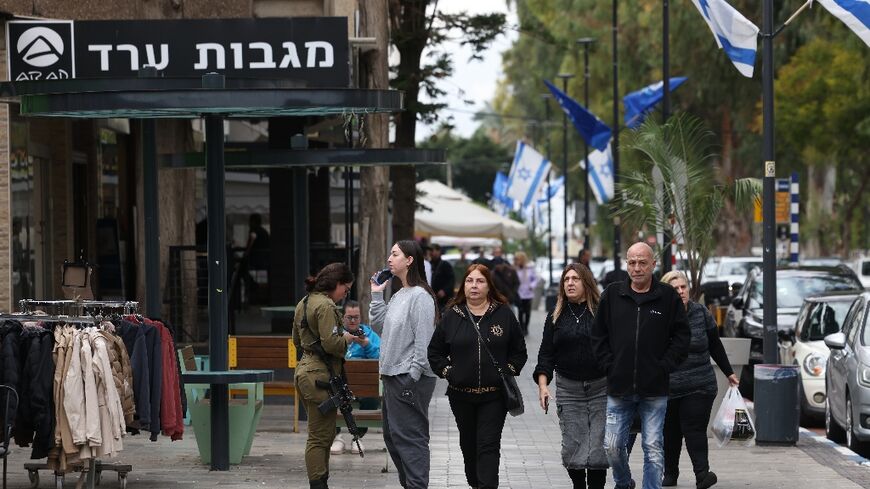Israeli beachgoers try to brush off Hezbollah threat

Waking at dawn on Sunday to explosions and sirens, Abigail Levy checked the news and quickly understood there had been "an escalation" of hostilities between Israel and Hezbollah.
She stepped outside to find the Israeli port city of Haifa in a "very sad" state after the military announced it had carried out air strikes in Lebanon to thwart a large-scale attack by the Iran-backed militants.
"There was no one outside. Everything was closed, whereas usually there would be a lot of people and activity here," she said.
The coastal city's beaches are typically crowded during the summer, but with drones and rockets raining down near the border 30 kilometres (18 miles) away, Israeli authorities on Sunday declared a 48-hour state of emergency.
The Israeli civil defence force, the Home Front Command, ordered the closure of "supervised swimming areas" between Haifa and Nahariya, the northernmost city on the coast.
Red-and-white tape barred access to the beach in Haifa's Bat Galim neighbourhood, depriving vacationers of the chance to cool off in the Mediterranean as temperatures topped 30 degrees Celsius (86 degrees Fahrenheit).
- 'No sense' -
Hedva, a 32-year-old student who declined to give her last name, said she did not understand why such measures were necessary since "there are shelters in all the buildings near the beach".
But the army says these are an insufficient safeguard, asserting that, given Haifa's proximity to Lebanon, residents must be able to access anti-rocket shelters less than a minute after hearing sirens to avoid the risk of being hit by projectiles and fragments.
Hezbollah began firing on Israel on October 8, one day after Hamas's unprecedented attack on southern Israel triggered the ongoing war in the Gaza Strip.
The cross-border violence has killed hundreds, mostly in Lebanon, and displaced tens of thousands of residents in both southern Lebanon and northern Israel.
On the Lebanese side 605 people have been killed, mostly Hezbollah fighters, but including at least 131 civilians, according to an AFP tally.
On the Israeli side, including in the annexed Golan Heights, authorities say 23 soldiers and 26 civilians have been killed.
Hezbollah recently released a video threatening the port of Haifa, claiming the footage came from one of its drones.
The city is home to a refinery and large industrial zone, raising residents' fears of a chemical disaster in the event of such an attack.
In the summer of 2006, during the war between Israel and Hezbollah, the militant group targeted Haifa with rockets, and 15 years earlier Iraqi missiles fired on Haifa during the Gulf War.
Despite this history, 62-year-old Jane Paz said on Sunday she had "not an ounce of fear", while voicing frustration that her planned day at the beach had been scuttled.
"It makes no sense to close the beach and force people to stay home!" she fumed at a security guard who ordered her and her dog away from the water and onto a nearby promenade.
- 'We shouldn't be afraid' -
"If a missile is going to fall, it will fall. Jews are not safe anywhere anyway, so we can't live in constant fear," Paz told AFP.
Sitting on a bench, Olga Log staved off her boredom with a beer.
"I come to the seaside every day. Israel is a great nation. We shouldn't be afraid of missiles," said the young woman of Russian origin.
"Around four in the morning, I heard a noise, as usual," she added, referring to the fighter jets and drones that frequently roar over northern Israel these days.
Log learned that the beaches were closed after consulting a Russian-language Israeli news site, but decided to head out anyway.
"I don't care," she told AFP before joining some others who ended up venturing onto the sand in defiance of official warnings.





